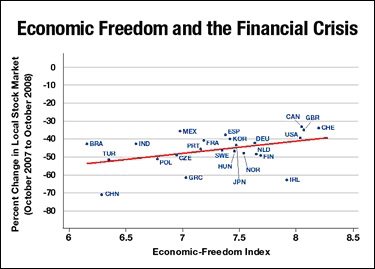Many are calling it one of the bloodiest days in American history. And now we face the prospect that terrorism has become a part of modern life. Crashing planes into buildings, hijackings, bombings, and assassinations on different continents of the world may seem like isolated attacks, but they reflect an easy reliance on violence as a way to promote social, political, and religious change. They are elements of a pervasive “end justifies the means” philosophy being followed to its most perverse conclusions.
Terrorism has become the scourge of democratic governments. According to Rand Corporation expert Brian Jenkins, nearly a third of all terrorists attacks involve Americans. Democratic governments, accustomed to dealing within a legal structure, often find it difficult to deal with criminals and terrorists who routinely operate outside of the law. Yet deterrence is just as much a part of justice as proper enforcement of the laws.
Democratic governments which do not deter criminals inevitably spawn vigilantism as normally law-abiding citizens, who have lost confidence in the criminal justice system, take the law into their own hands. A similar backlash is beginning to emerge as a result of the inability of Western democracies to defend themselves against terrorists.
But lack of governmental resolve is only part of the problem. Terrorists thrive on media exposure, and news organizations around the world have been all too willing to give terrorists what they crave: publicity. If the news media gave terrorists the minuscule coverage their numbers and influence demanded, terrorism would decline. But when hijackings and bombings are given prominent media attention, governments start feeling pressure from their citizens to resolve the crisis and eventually capitulate to terrorists’ demands. Encouraged by their latest success, terrorists usually try again. Appeasement, Churchill wisely noted, always whets the appetite, and recent successes have made terrorists hungry for more attacks.
Some news commentators have been unwilling to call terrorism what it is: wanton, criminal violence. They blunt the barbarism by arguing that “one man’s terrorist is another man’s freedom fighter.” But this simply is not true. Terrorists are not concerned about human rights and human dignity. In fact, they end up destroying human rights in their alleged fight for human rights.
Terrorism has been called the “new warfare.” But terrorists turn the notion of war on its head. Innocent non-combatants become the target of terrorist attacks. Terrorist warfare holds innocent people hostage and makes soldier and civilian alike potential targets for their aggression.
Terrorist groups are not living in fear of their host governments. Instead, law-abiding citizens live in fear of terrorist groups. In one TV interview a Middle Eastern terrorist was quoted as saying, “We want the people of the United States to feel the terror.”
The ability of these groups to carry out their agenda is not the issue. The fundamental issue is how U.S. government leaders should deal with this new type of military strategy. Terrorists have held American diplomats hostage for years, blown up military compounds, and hijacked airplanes and cruise ships. Although some hostages have been released, many others have been killed and the U.S. has been unsuccessful at punishing more than a small number of terrorists.
Although international diplomacy has been the primary means used by the United States against terrorism, we should consider what other means may also be appropriate. In the past, American leaders have responded to military aggression in a variety of ways short of declaring war.
Military strategy must be deployed which can hunt down small groups of well-armed and well-funded men who hide within the territory of a host country. We must also develop a political strategy that will allow us to work within a host country. We must make it clear how serious the United States takes a terrorist threat. American citizens are tired of being military targets in an undeclared war.
Through diplomatic channels we must make two things very clear to the host country. First, they should catch and punish the terrorist groups themselves as civilian criminals. Or, second, they should extradite the enemy soldiers and give them up to an international court for trial.
If the host country fails to act on these two requests, we should make it clear that we see them in complicity with the terrorist groups. But failing to exercise their civil responsibility, they leave themselves open to the consequences of allowing hostile military forces within their borders.
In some cases, an American strike force of counterterrorists might be necessary when the threat is both real and imminent. This should be the option of last resort, but in certain instances it may be necessary. In 1989, for example, Israeli special forces captured Sheik Obeid and no doubt crippled the terrorist network by bringing one of their leaders to justice. Such acts should be done rarely and carefully, but they may be appropriate means to bring about justice.
In conclusion, I believe we must recognize terrorism as a new type of military aggression which requires governmental action. We are involved in an undeclared war and Congress and the President must take the same sorts of actions they would if threatened by a hostile country. We must work to deter further terrorist aggression.
©2001 Probe Ministries.









